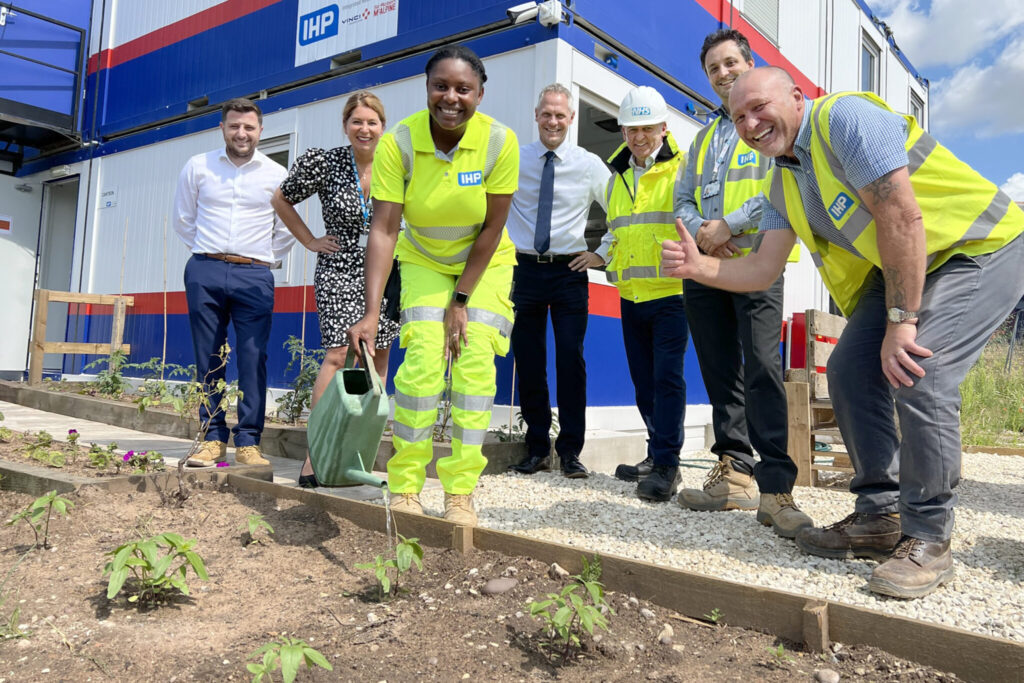This green oasis has been carefully assembled using recycled materials and donations, highlighting the project team’s commitment to sustainability and employee wellbeing.
Colleagues have contributed to the garden’s creation by repurposing recycled planting and edging materials from various areas of the hospital. Tomato plants have also been cultivated against the temporary cabins, adding a touch of nature to the site, whilst the garden’s benches and tables are crafted from recycled pallets and cable drums, serving as reminders of the project’s dedication to minimising waste sent to landfill.
Phil Worsnip, Project Manager at VINCI Building for the Bassetlaw Emergency Village, has been instrumental in overseeing the development of the garden in his role as the site’s Wellbeing Ambassador, he said: “We recognise the challenges faced by our construction workers and believe that providing them with a relaxing space away from their demanding roles is of utmost importance. This job is tough, and allowing the team to have somewhere to rest, reflect, and have five minutes away from site is very important to us.”
The garden at Bassetlaw Emergency Village has also been entered into the Workplace in Bloom competition, an initiative aimed at boosting morale and instilling pride in the workplace. By participating in this competition, the project team hopes to showcase their dedication to creating an environment that fosters well-being and offers something back to those they work with.
Suzy Brain England OBE, Chair of the Board at DBTH, said: “This is a wonderful idea. Incorporating a garden within a construction yard not only promotes sustainability but also nurtures the well-being of the workers. This initiative sets a positive example for others, demonstrating that even small gestures can have a significant impact on creating a healthier and more sustainable workplace.”
The Bassetlaw Emergency Village is an ambitious £17.6 million project, funded by the Department of Health and Social Care, which aims to significantly expand the capacity of the Emergency Department (ED) and enable the co-location of children’s services. Once completed, the state-of-the-art facility will reinstate 24/7 urgent and emergency paediatric care, addressing a previous issue from 2017 when children requiring overnight care had to be transferred to Doncaster Royal Infirmary due to staffing challenges.




